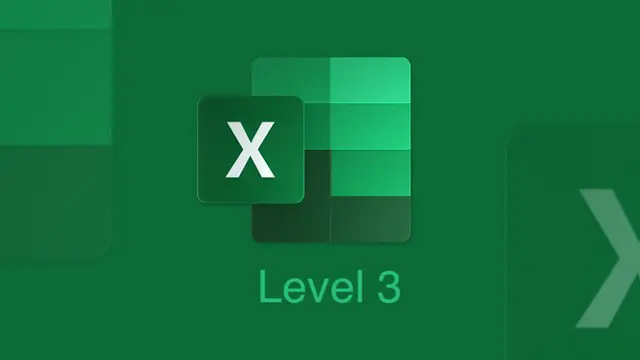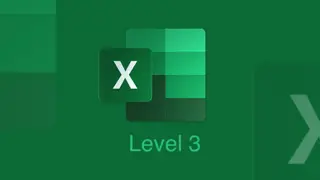
Microsoft Excel – Part 3
Learn to perform advanced data analysis, collaborate on workbooks with other users, and automate workbook functionality.
Sonic Performance Support
Summary
- Reed courses certificate of completion - Free
Add to basket or enquire
Overview
The ability to collaborate with colleagues, automate complex or repetitive tasks, and use conditional logic to construct and apply elaborate formulas and functions will put the full power of Excel right at your fingertips.
Certificates
Reed courses certificate of completion
Digital certificate - Included
Will be downloadable when all lectures have been completed
Curriculum
Course media
Description
Would you like to become an Excel specialist and use the enormous functionality of Excel to your advantage? In this expert course, you will get to know especially helpful features, such as collaborative editing of workbooks and management of more complex Excel documents, through the implementation of tools such as formula tracking and reference functions. The ability to collaborate with colleagues, automate complex or repetitive tasks, and use conditional logic to construct and apply elaborate formulas and functions will put the full power of Excel right at your fingertips. The more you learn about how to get Excel to do the hard work for you, the more you'll be able to focus on getting the answers you need from the vast amounts of data your organization generates.
Upon successful completion of this course, you’ll be able to perform advanced data analysis, collaborate on workbooks with other users, and automate workbook functionality.
You will:
- Work with multiple worksheets and workbooks
- Use Lookup functions and formula auditing
- Share and protect workbooks
- Automate workbook functionality
- Create sparklines and map data
- Forecast data
Who is this course for?
This course is suitable for you, if
- you need to troubleshoot large, complex workbooks
- you wish to automate repetitive tasks
- you need to construct complex Excel functions and use those functions to perform rigorous analysis of extensive, complex datasets
Requirements
- The knowledge taught in the course Microsoft 365 – Learn, Understand and Use Basic Functions and Concepts or comparable practical experience is helpful to follow the content shown in this training more easily.
- This course builds upon the foundational knowledge presented in the courses Microsoft Excel – Part 1 and Microsoft Excel – Part 2.
Questions and answers
Currently there are no Q&As for this course. Be the first to ask a question.
Reviews
Currently there are no reviews for this course. Be the first to leave a review.
Legal information
This course is advertised on reed.co.uk by the Course Provider, whose terms and conditions apply. Purchases are made directly from the Course Provider, and as such, content and materials are supplied by the Course Provider directly. Reed is acting as agent and not reseller in relation to this course. Reed's only responsibility is to facilitate your payment for the course. It is your responsibility to review and agree to the Course Provider's terms and conditions and satisfy yourself as to the suitability of the course you intend to purchase. Reed will not have any responsibility for the content of the course and/or associated materials.


